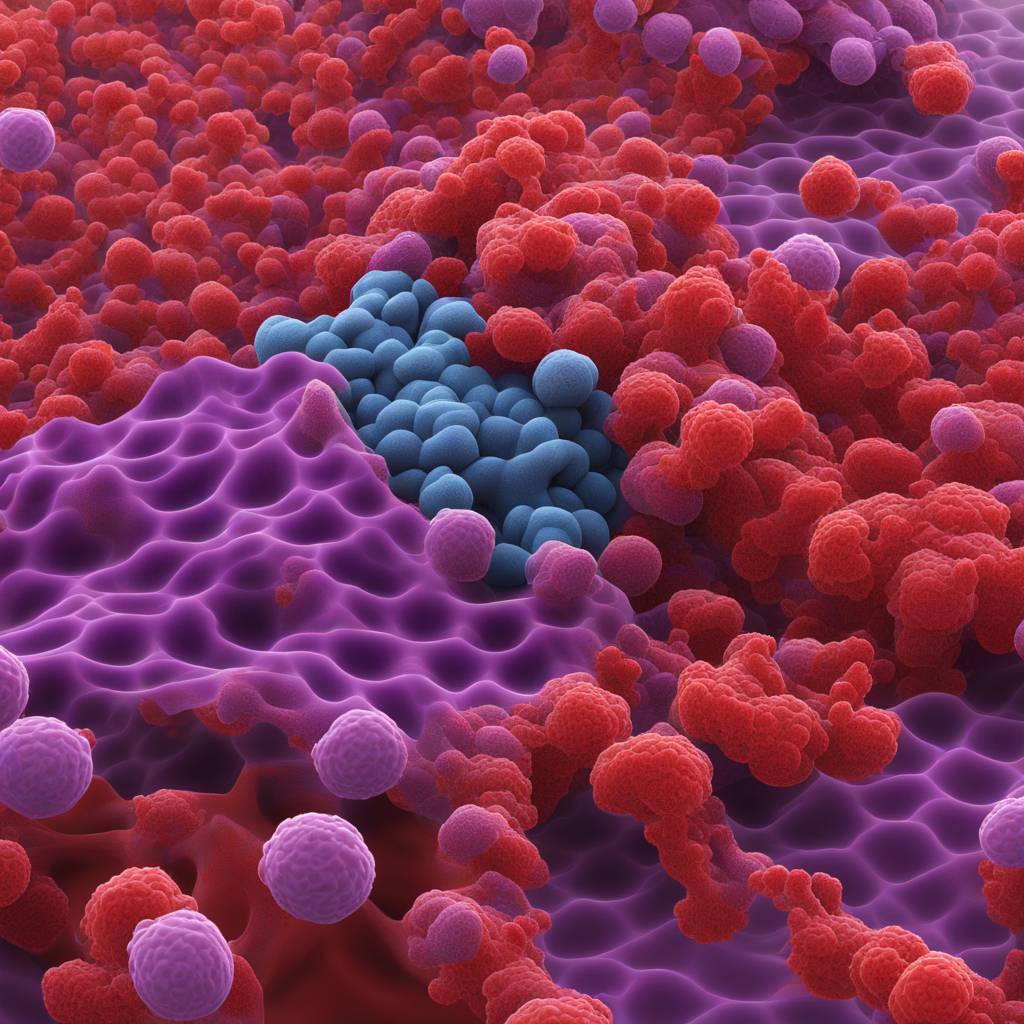A study published in Science Advances revealed that a combination of two medications, a DNMT inhibitor and an EZH2 inhibitor, could potentially be more effective in treating colorectal cancers and other solid tumors. The research, led by Van Andel Institute scientists, found that low doses of the DNMT inhibitor sensitize cancer cells to the EZH2 inhibitor, leading to a stronger response against cancer cells. These findings have laid the groundwork for an upcoming Phase I clinical trial to test the efficacy of this combination therapy in people with colorectal cancer or other solid tumors, as current treatments have had limited success in solid tumors.
DNMT and EZH2 inhibitors target epigenetic processes that control gene expression in cancer cells. Epigenetic errors in cancer cells allow them to survive and grow, making them vulnerable to these inhibitors. The study demonstrated that combining DNMT and EZH2 inhibitors activates a process called viral mimicry more effectively than either drug alone, potentially enhancing the effectiveness of these medications in treating solid tumors. This trial will be the first time these two types of medications are combined to improve their activities in solid tumors, presenting a promising approach to treating these types of cancers.
Colorectal cancer is a significant global health issue, with more than 1.9 million cases diagnosed in 2020 and an expected increase to 3.2 million cases by 2040. While screening and early detection have lowered rates among older individuals in the U.S., rates are rising in younger individuals. Van Andel Institute Professor Scott Rothbart emphasized the need for more effective treatment strategies for colorectal cancer, stating that combining medications may be a potent way to target different aspects of cancer simultaneously. The study’s findings suggest that epigenetic drugs could also enhance the effectiveness of immunotherapy in treating cancer, providing additional opportunities to improve cancer treatment outcomes.
The upcoming clinical trial will be supported by the Van Andel Institute-Stand Up To Cancer© (SU2C) Epigenetics Dream Team, a collaboration that evaluates promising combination therapies for cancer, as well as a National Cancer Institute Specialized Programs of Research Excellence (SPORE) award. The SPORE-supported subproject on DNMT and EZH2 inhibitors, led by Rothbart and Stephen Baylin from Johns Hopkins University and Van Andel Institute, contributed to the findings of the study. These collaborations have helped to advance understanding of how DNMT and EZH2 inhibitors work together, potentially leading to more effective treatment strategies for solid tumors.
The study’s authors, including Alison A. Chomiak, Rochelle L. Tiedemann, Yanqing Liu, Ashley K. Wiseman, Kate E. Thurlow from Van Andel Institute, Xiangqian Kong, Ying Cui, and Michael E. Topper from Johns Hopkins University, and Evan M. Cornett from Indiana University, played key roles in investigating the effects of combining DNMT and EZH2 inhibitors in cancer cells. Their research has shed light on the potential of this combination therapy to improve outcomes for colorectal cancer and other solid tumors. The study highlights the importance of exploring novel treatment approaches like combining medications to target multiple aspects of cancer and enhance treatment options for patients with solid tumors.













